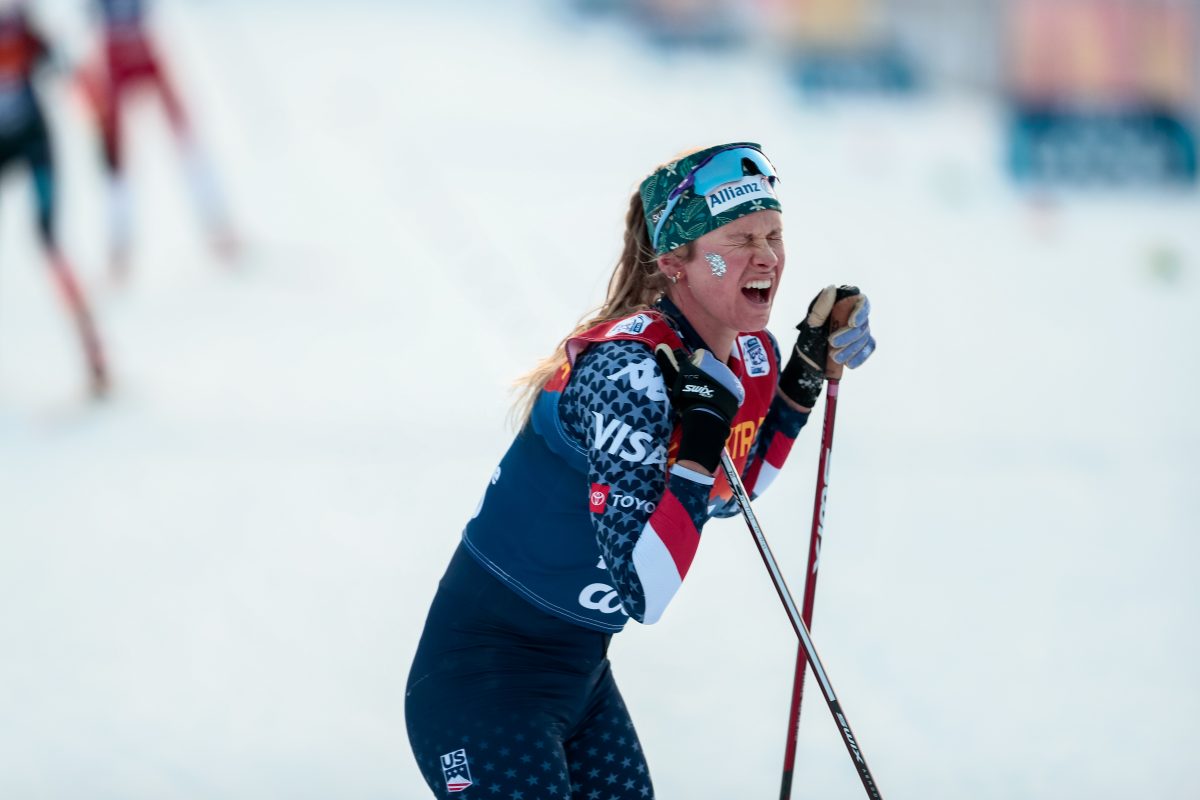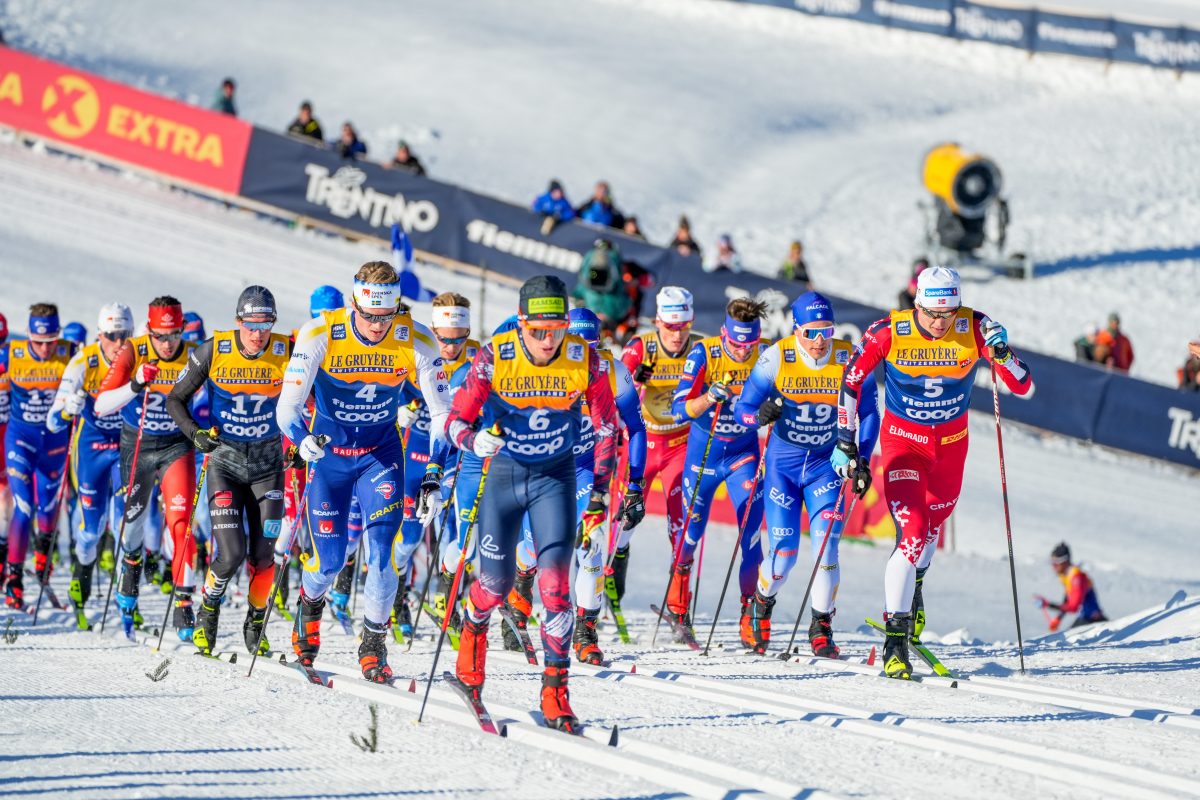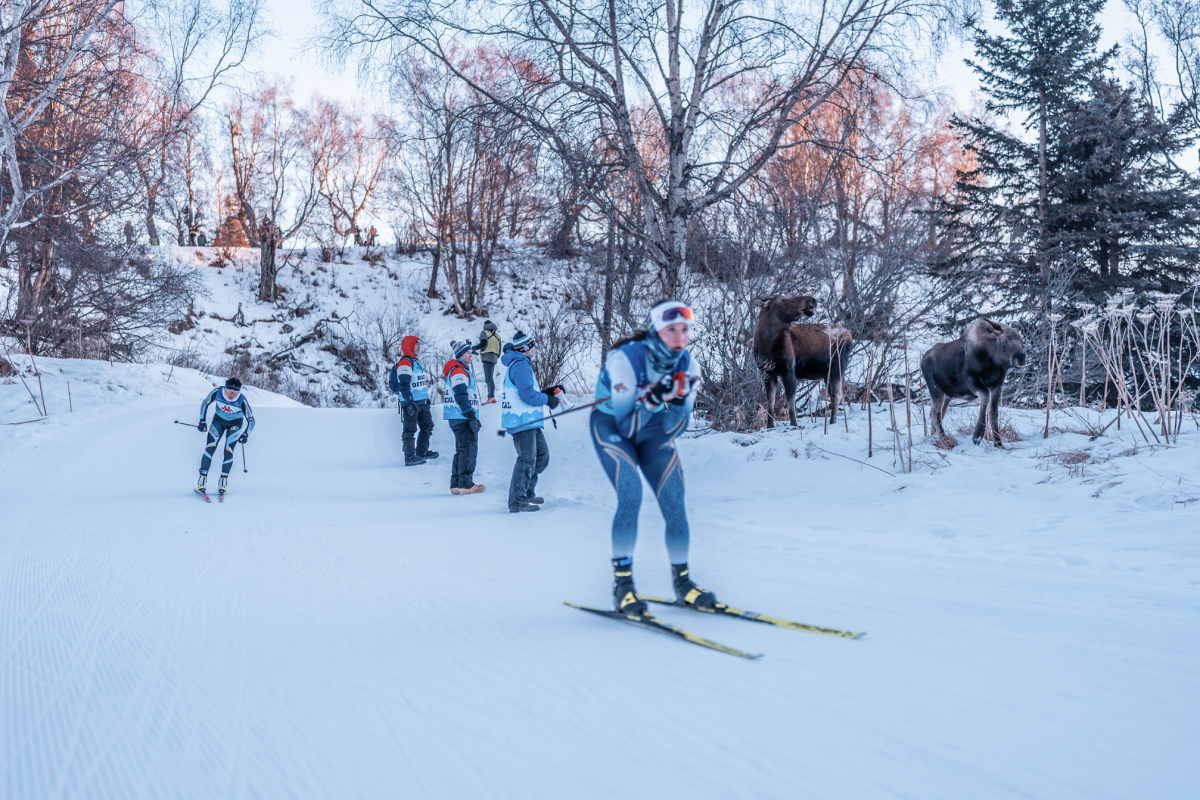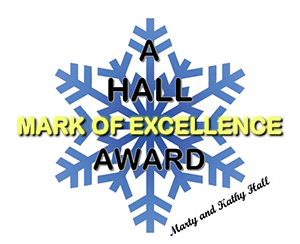 This World Cup coverage is made possible through the generous support of Marty and Kathy Hall and A Hall Mark of Excellence Award. To learn more about A Hall Mark of Excellence Award, or to learn how you can support Fasterskier’s coverage, please contact info@fasterskier.com.
This World Cup coverage is made possible through the generous support of Marty and Kathy Hall and A Hall Mark of Excellence Award. To learn more about A Hall Mark of Excellence Award, or to learn how you can support Fasterskier’s coverage, please contact info@fasterskier.com.
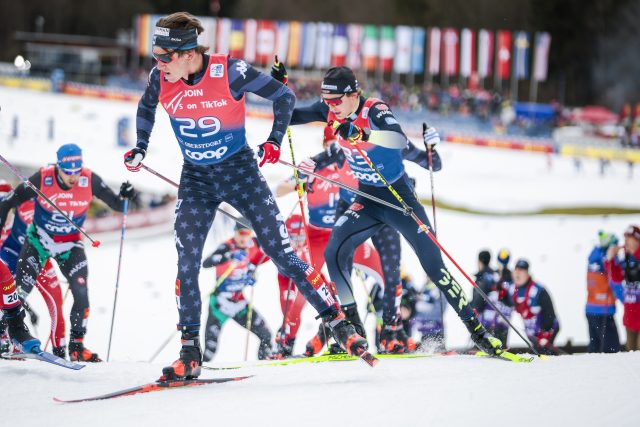
The Tour de Ski spent its second day in Oberstdorf for the running of Stage 4, the 20 k Freestyle Pursuit. For the second day in a row, it was North Americans who raced their way toward the front. Most remarkable, perhaps, were Scott Patterson (USA) with the fourth fastest time of the day (he would rise from 29th to 17th overall), and Antoine Cyr (CAN) with the seventh fastest time of the day (rising from 37th to 24th overall).
Other Canadian finishers included Olivier Léveillé 35th (from 24th), Russell Kennedy 41st (from 56th), Sam Hendry 66th (from 74th), Graham Ritchie 67th (from 65th), Remi Drolet 72nd (from 75th).
American finishers included three more Americans in the top thirty: Ben Ogden finished13th (having started 6th) , Hunter Wonders finished 19th (from 11th), and Gus Schumacher 26th (from 15th). Zak Ketterson finished 55th (from 38th), JC Schoonmaker finished where he had started in 69th, while Kevin Bolger rose to 71st (from 73rd).
Almost as an afterthought, Johannes Hoesflot Klaebo skied to the 20 k Pursuit win in dominant fashion. Klaebo managed his own pace—and the pace of the field—in a masterful display that saw him pulling away from the pack in the final kilometer and easing across the line for the win (though losing cumulative time to many of his rivals in the Tour de Ski overall competition). Following him to the finish line were Sindre Bjoernestad Skar (NOR) in 2nd, and Federico Pellegrino (ITA) in 3rd.
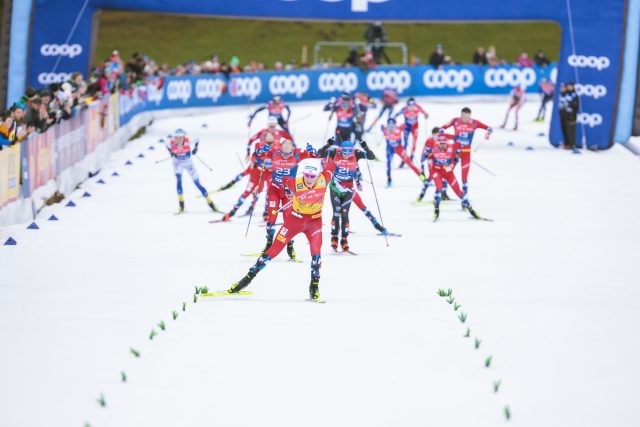
Men’s 20 k Freestyle Pursuit
This was a day of differing strategies: some racers knew they had to commit everything in order to move up in the Tour de Ski standings, while others were choosing to conserve their energy for later stages. Others (like Klaebo) knew they could afford to give back some time, holding their overall positions while committing only enough energy to prevail in the day’s racing.
Tour de Ski Stage 4 was a 20 k Freestyle Pursuit in which the starting order was derived from yesterday’s 10 k Classic (NOT from the order of the overall standings). Oberstdorf’s strip of manmade snow ran through the fields and forests along a rolling 3.3 kilometer loop that racers would navigate six times. The starting order gave Klaebo a 12 second advantage over Simen Hegstad Krueger, :20 to Didrik Toenseth, :25 to Calle Halfvarsson, :27 to Golberg, :30 to Ben Ogden. This closely-bunched group of starters made it quite likely that the entire field could come together within just the first few kilometers. Twenty kilometers is quite a distance to ski alone, and Klaebo is smart enough to know that he could exhaust himself by attempting to maintain his lead over so strong a group of chasers. And with his sprinting abilities, Klaebo would be likely to win the day’s event if he conserved his energy, allowed the field to catch him, and outsprinted them at the end. The men’s race looked certain to group up.
Like the pursuit race earlier in the Tour de Ski, each skier’s relative success can be judged by more than one result. There are skiers who do well in the pursuit finishing order, and others who do well in the timed-results on the day . . . and the comparison of success and failure is not always immediately apparent. A racer may finish well in the race standings by holding position in a pack of skiers and outsprinting them at the end, even though his on-the-day time could be much slower than other skiers who caught his group from behind. Pursuit racing is about patience and strategy as much as it is about maximal efforts and daring pyrotechnics. The races going on in the middle of the field can be extraordinarily complex. The racing at the front is far more straightforward . . .
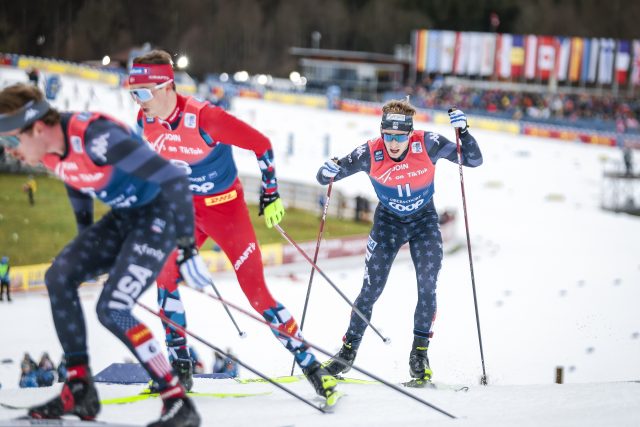
Klaebo started alone with a 12 second advantage over his pursuers. Soon after the start, a chase group formed that included Krueger, Didrik Toenseth (NOR), Calle Halfvarsson (SWE), and Paal Golberg (NOR). That group was closely followed by Andrew Musgrave (GBR) who was able to join a few kilometers later. All chasers were making up time on Klaebo, who was obviously allowing himself to be caught. The catch happened within the first five minutes of racing (near the 2.1 k checkpoint), forming a group that would stay together all through the middle of the race. The group was led by Simen Hegstad Krueger who was consistently marked by Klaebo, and trailed by Golberg.
A fairly relaxed pace at the front allowed later starters to bridge the gap at four kilometers, and the lead pack swelled to a dozen. Having been gapped by Musgrave, Ogden found himself overtaken by an aggressive chase pack that included Poromaa, Hunter Wonders, Gus Schumacher, Emil Iversen, Havard Moseby, Hans Christer Holund. There was no relaxing to do in the chase group; they were headed for the front, and were wasting no time in making it happen. Pellegrino would ultimately lead another group forward to join with the lead group, and the field ultimately swelled to nearly 30 racers, including Americans Ogden, Schumacher, Wonders, Patterson, and the Canadian Cyr.
“We caught the lead pack in three laps . . . and it turned into a little bit of a cat and mouse game which was a little bit frustrating,” said Patterson. “I wanted it to be a harder race. But it turned out all right. As people get tired, I start moving up the ranks. I’m excited for Val di Fiemme. “
Wonders summed up his Stage 4 experience: “Once we caught the lead pack it started to chill out a little bit,” he said. “I was just trying to ski relaxed; it was pretty exciting to be skiing with a bunch of guys I’ve been watching for years!”
Having started 33rd on the day, Frederik Moch (GER) went to the front to push the pace in the second half of the race (Moch would post the fastest time on the day). Sjur Roethe (NOR) attacked at 12 k with Halfvarsson and Krueger, but the contenders came back together after a fast downhill. The lead group dwindled to 24 as the race neared its conclusion, and the jockeying for position began with the field nearly coming to a standstill at times. With a kilometer remaining in the race, Klaebo unleashed a surge on the final uphill before the stadium followed by Skar and Pellegrino. As has so often been the case, Klaebo’s high-tempo surge on the final uphill was one that no one else could match. He crested the hill alone, relied on his fast skis on the downhill, and maintained his lead through the finishing line. The field came charging behind him in a sprint won by Skar, who was closely followed across the line by Pellegrino. Nine Norwegians finished in the top 12, followed by Ogden in 13th (though his finishing time was only five seconds behind Klaebo’s winning time).
“The pack stayed together the whole race,” Ogden said. “And then they just sprinted for it in the last K, or so. I think that my strengths in 20 k are better suited in the last K than they are in the first 19!”
Klaebo earned the win, but with only the 42nd fastest time of the day, giving back :22 to Golberg, and 1:01 to Pellegrino in the TDS overall standings. Klaebo knows he must moderate his efforts in order to have the energy to hang on through the end of this week-long tour. But he also sees the possibility of sweeping the series—of winning every stage—on his way to an historic Tour de Ski victory that could also garner enough points to bring him the World Cup overall title.
After the close racing of Stage 4, the Tour de Ski Overall standings return to a much tighter affair: Klaebo continues to lead Pellegrino by :12, Golberg by :14, Skar and Krueger by :32, Toenseth, Roethe, Holund by :39, and Halfvarsson by :49.
Tour de Ski, Men’s 20 k Freestyle Pursuit RESULTS
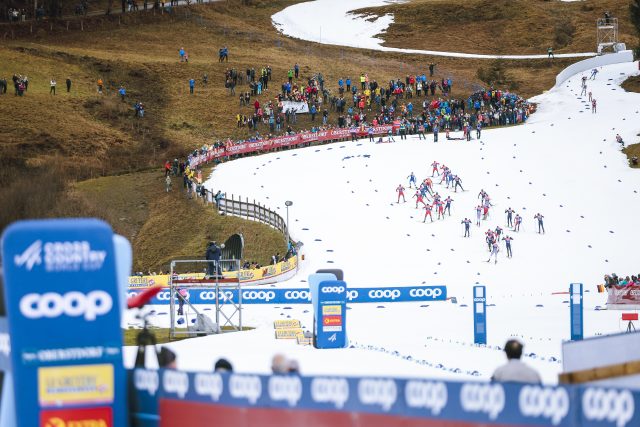
John Teaford
John Teaford—the Managing Editor of FasterSkier — has been the coach of Olympians, World Champions, and World Record Holders in six sports: Nordic skiing, speedskating, road cycling, track cycling, mountain biking, triathlon. In his long career as a writer/filmmaker, he spent many seasons as Director of Warren Miller’s annual feature film, and Producer of adventure documentary films for Discovery, ESPN, Disney, National Geographic, and NBC Sports.

